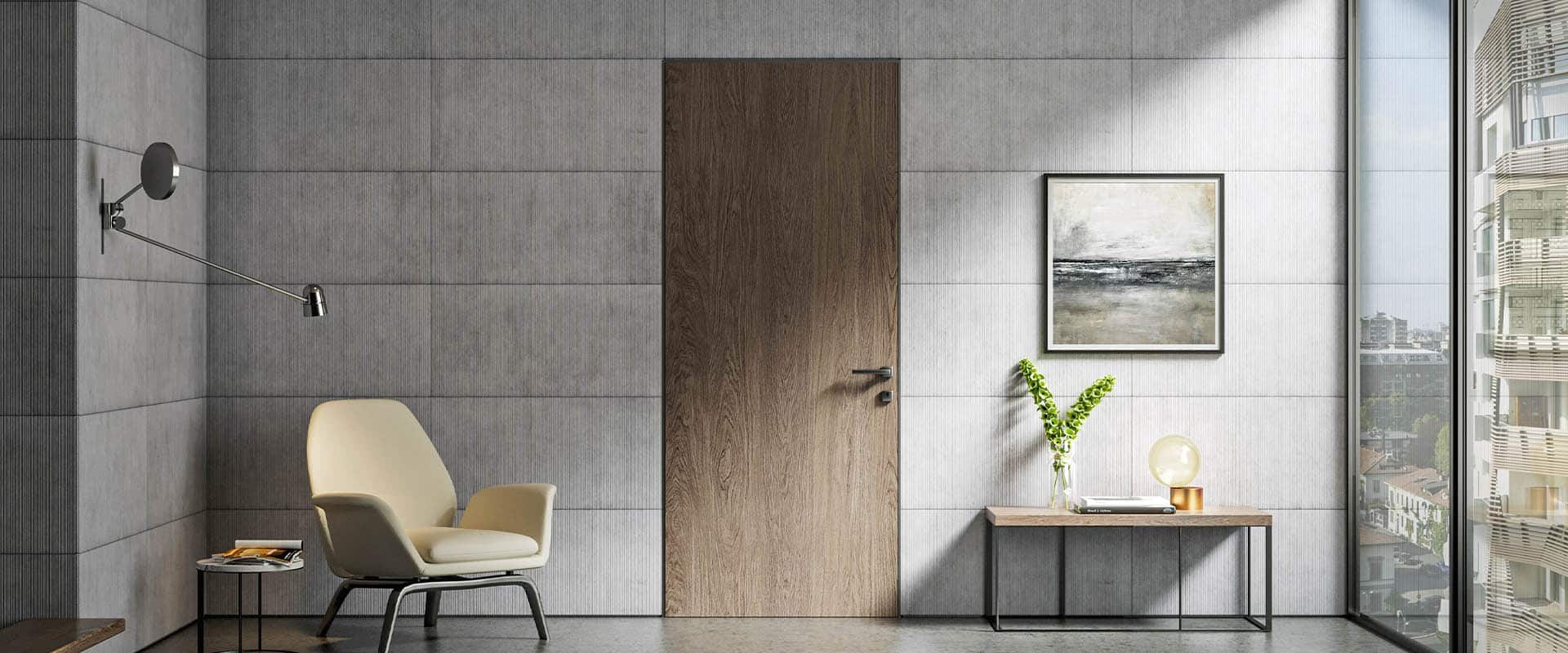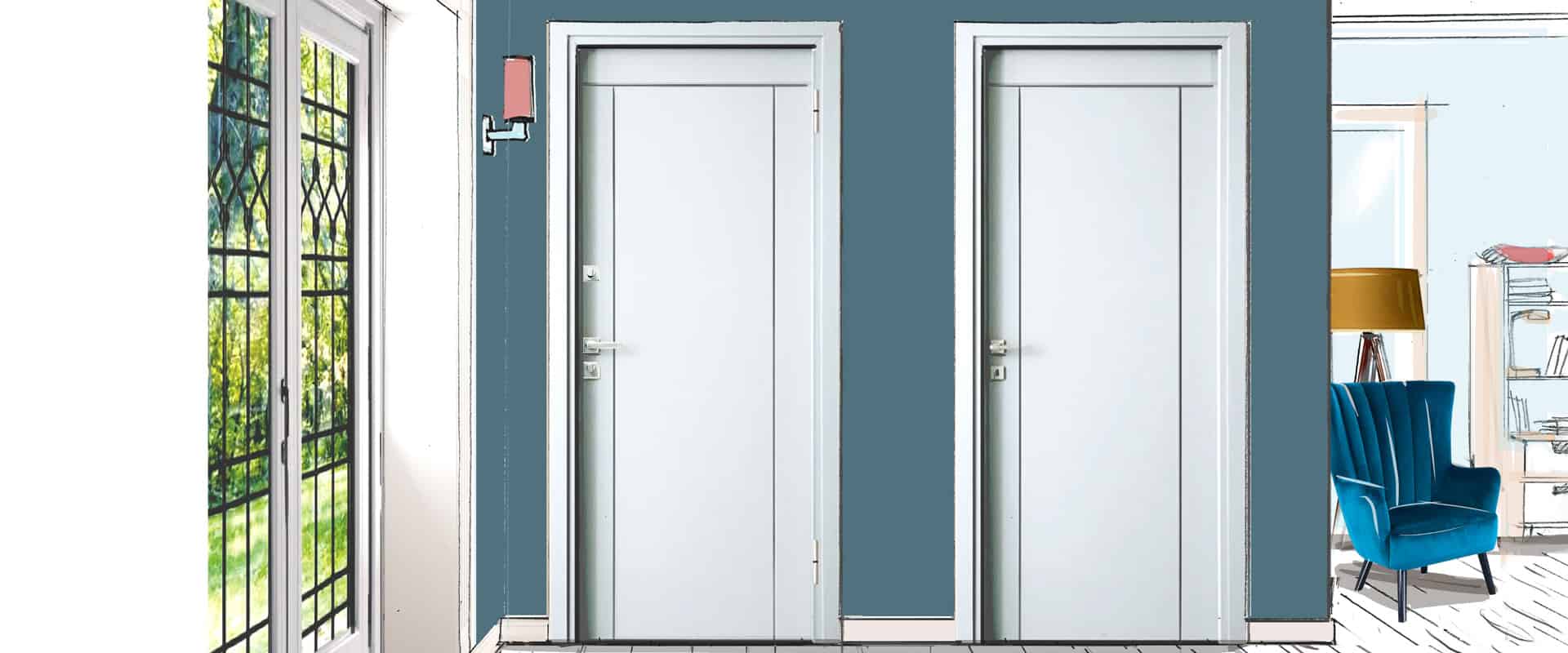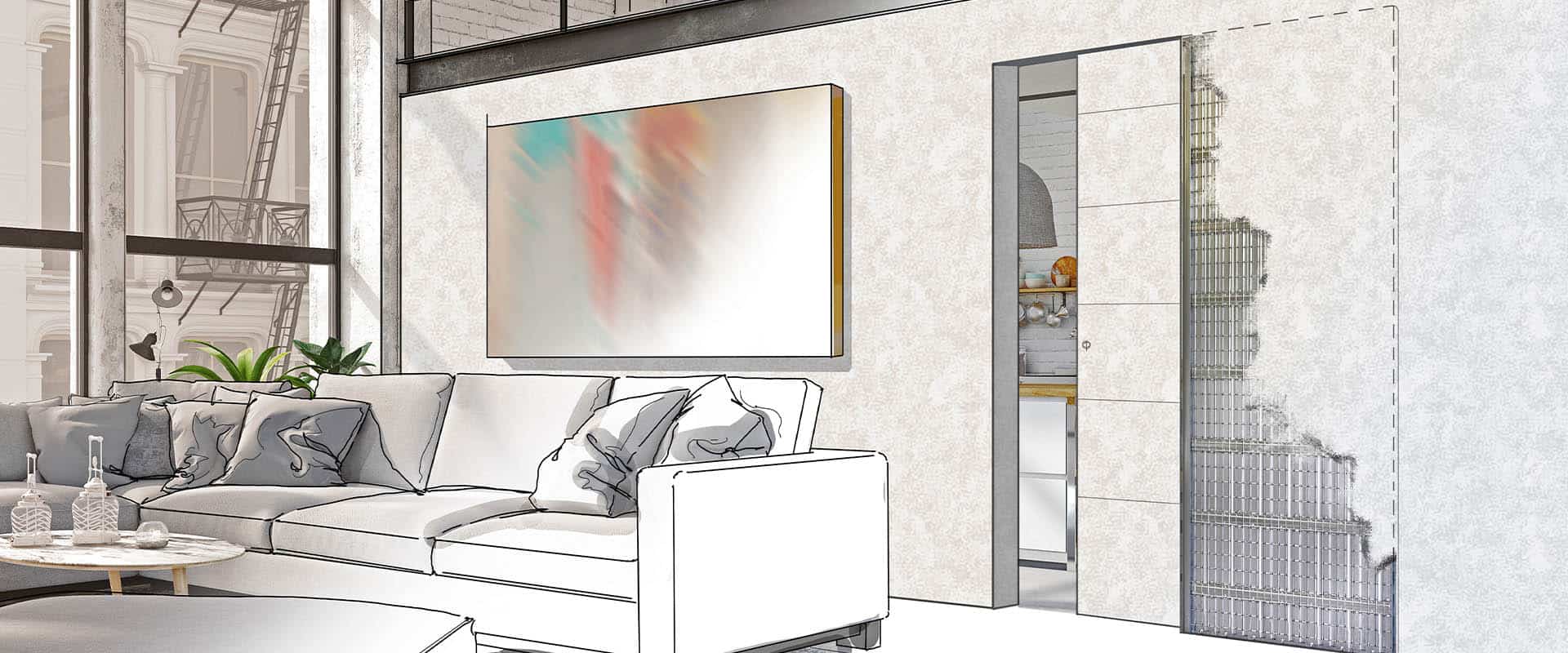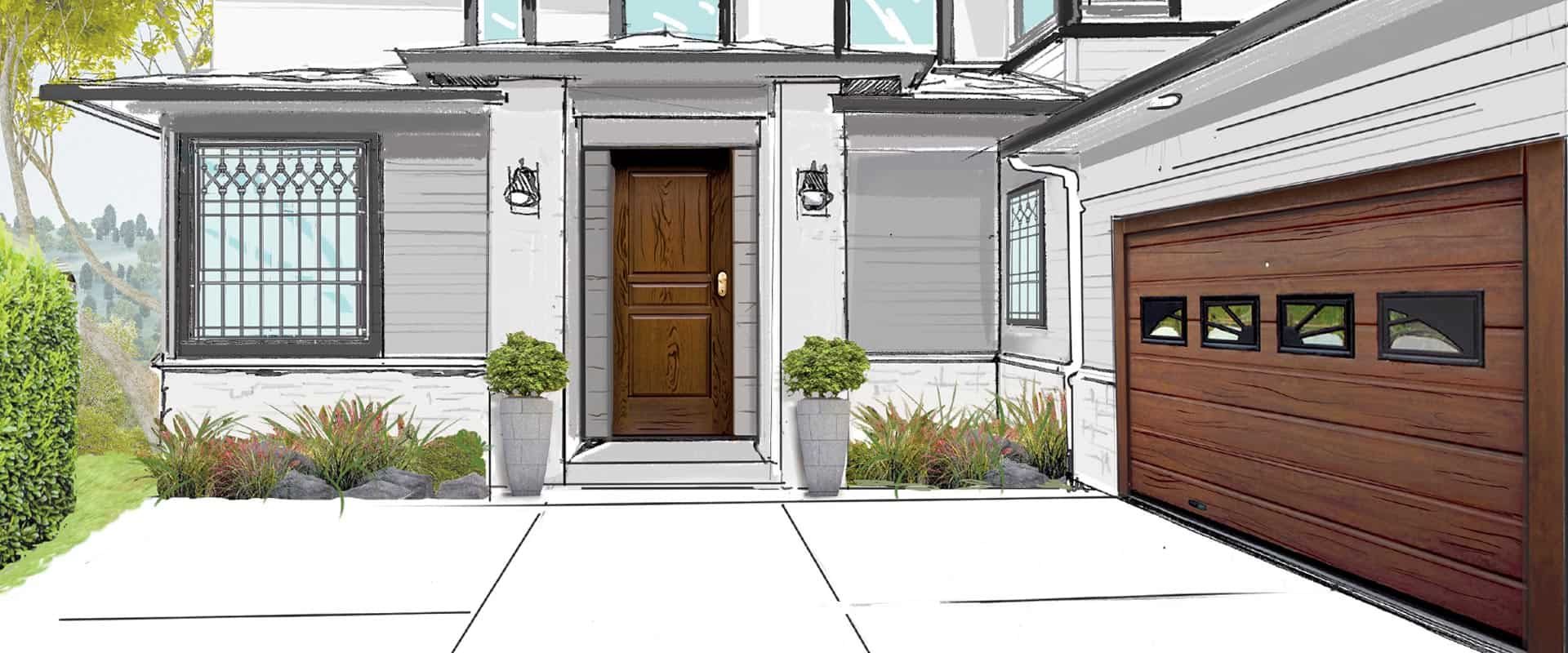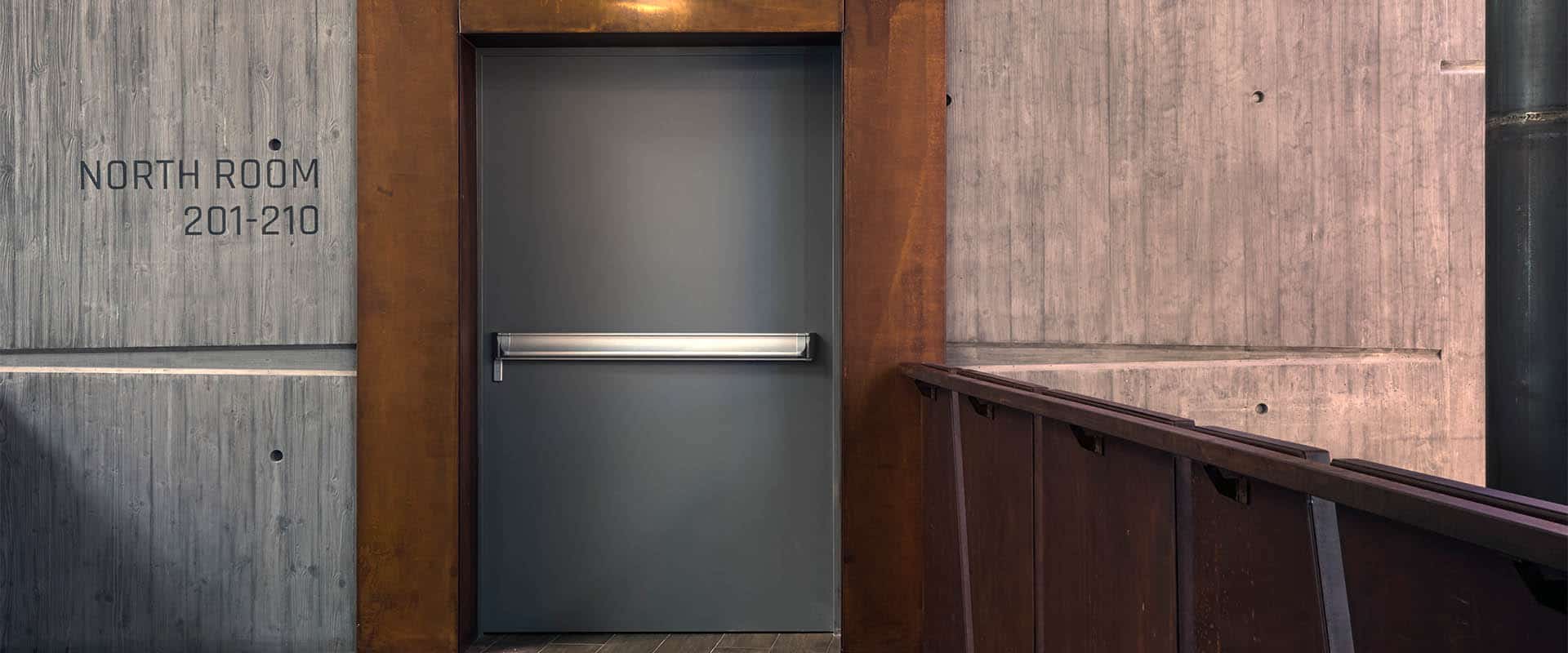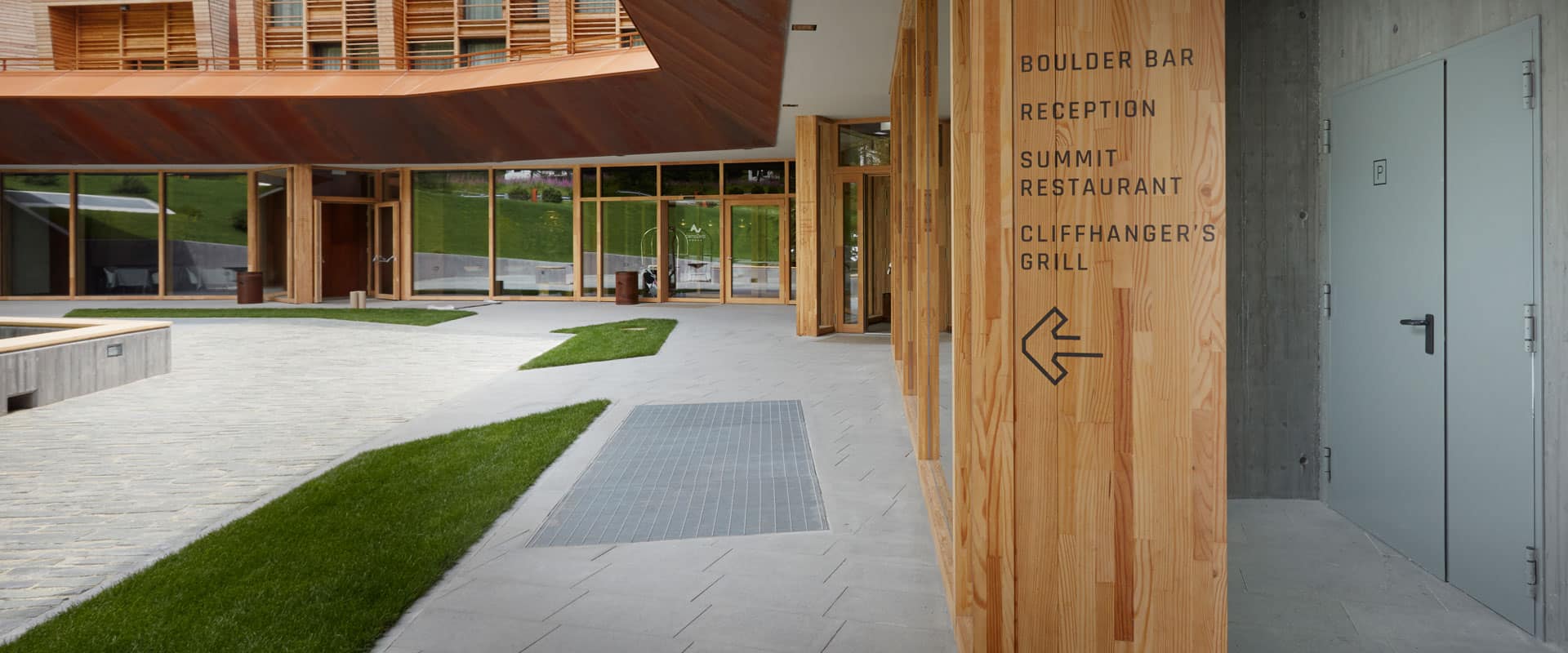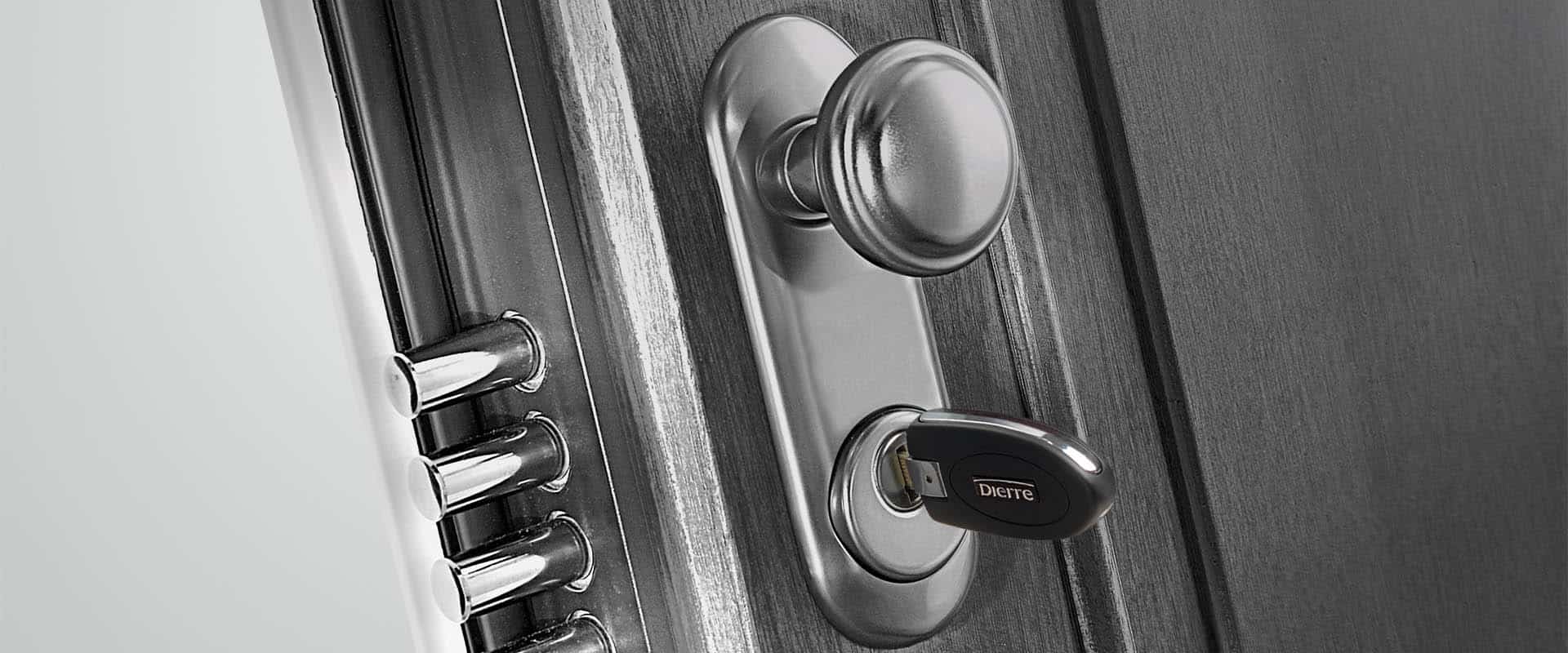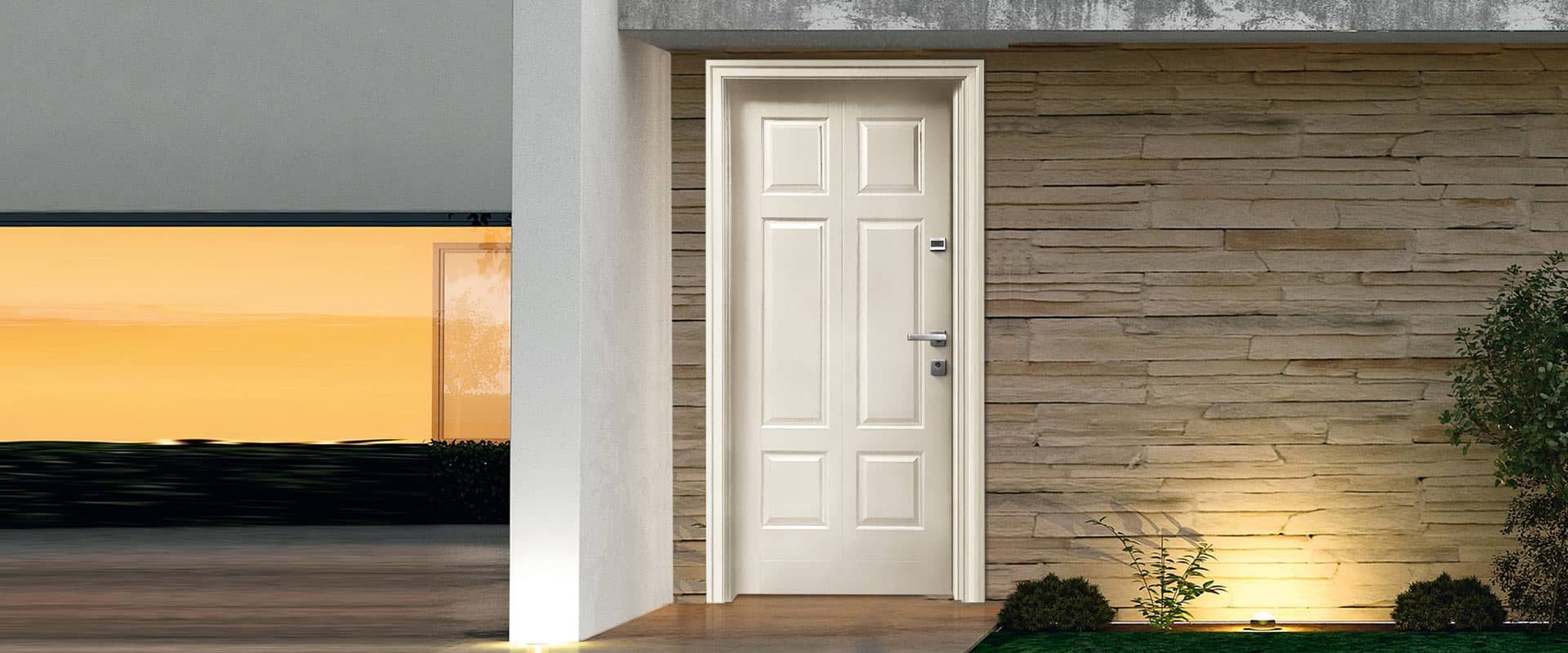“BREAKING THE SOUND BARRIER” WITH DIERRE SOUNDPROOF SECURITY DOORS
What CAN we do when busy streets and noisy apartment blocks disturb our peace of mind? In this article, Luca De Robertis, Dierre's Technical Office Manager, explains how a soundproof security door can help restore peace and quiet in the home.
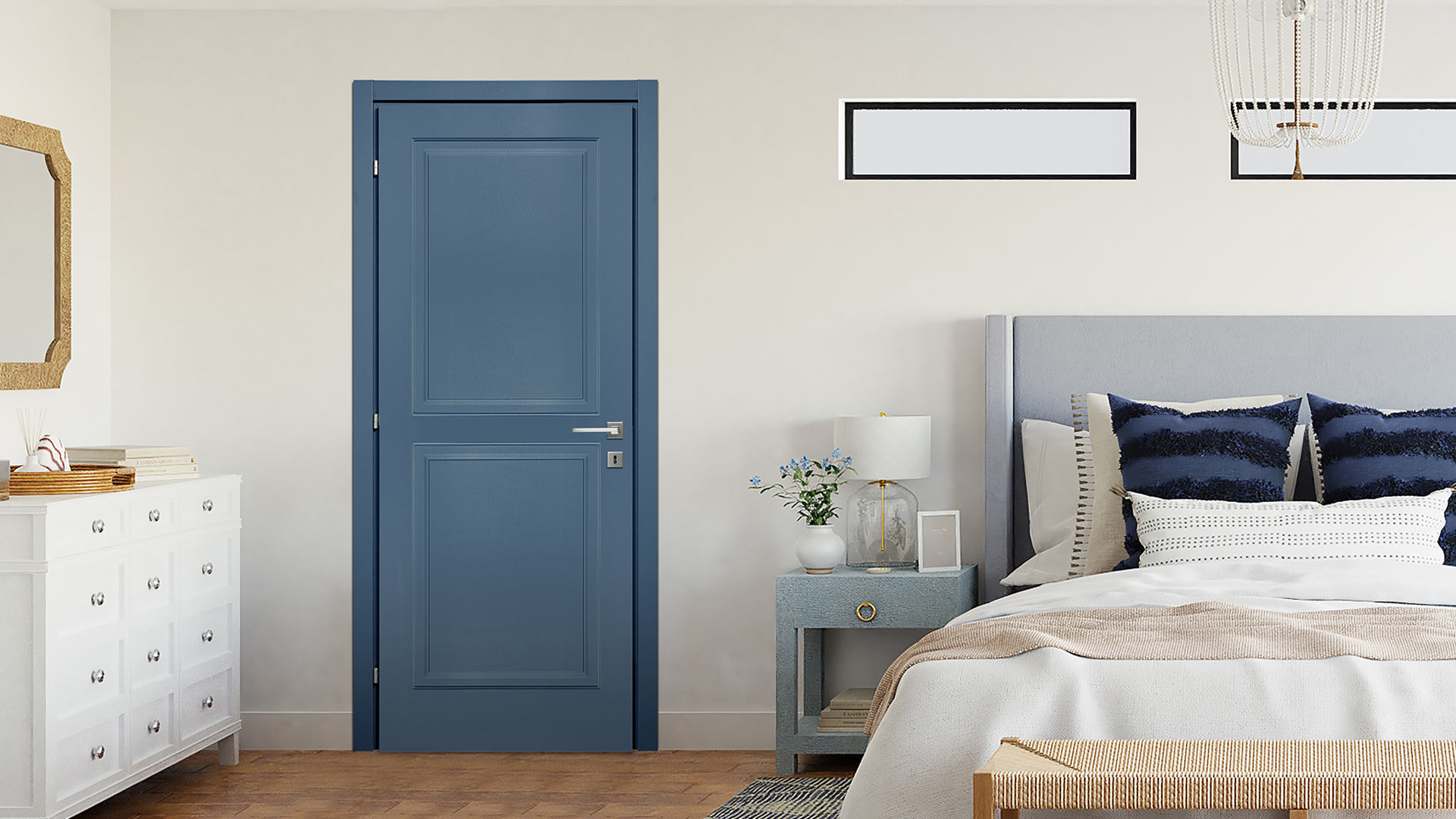
Here is what you will find in this article:
- Noisy cities and noise pollution
- What is “noise”? Some practical examples.
- The importance of security doors for noise reduction and soundproofing
- When noise goes out the door but comes in through the window
- Focus: Soundproof Security Doors for Apartments
- When should a security door be replaced to improve soundproofing?
- Dierre soundproof armored doors: security and silence in one solution
- Armored doors that “break the sound barrier”
- Our best soundproof armored doors
Noisy cities and noise pollution.
The days are punctuated by busy streets, construction, renovation, and commercial activity, and in most urban dwellings, the ever-present hustle and bustle of apartment buildings.
All these sources contribute to noise pollution, an invisible but present form of pollution that threatens our health.
According to the European Environment Agency,
“Long-term noise exposure can cause a range of adverse health effects, including irritability, sleep disturbance, adverse effects on the cardiovascular and metabolic systems, and impaired cognitive performance in children.”
That is why, in addition to initiatives to reduce noise in our cities, it is increasingly vital to take technological measures to keep noise out of our homes as much as possible
What is “noise?” Some practical examples.
The decibel (dB) measures various physical quantities, including sound.
That being said, we can consider:
- “Quiet” is a sound with an intensity between 0 dB and 60 dB;
- “Tolerable” means a sound with an intensity between 60 dB and 90 dB (as long as it is not prolonged);
- “Harmful” means a sound with an intensity between 90 and 120 dB.
It’s just that when you start using numbers, it’s easy to lose touch with reality: What does 60 decibels mean? What does 90 decibels mean?
Let’s try to relate the values to concrete situations to understand this.
0 dB: absolute silence (this doesn’t exist in nature!).
20 dB: a faint rustling of leaves.
30 dB: what we might expect in a reading room.
40 dB: a soft conversation.
50 dB: soft music.
60 dB: a normal conversation, 1 m away, or the sound of a city street with 50-200 vehicles per hour, perceived from about 35 m away.
The threshold between what we commonly call “silence” and “noise” lies roughly at this point.
70 dB: The background noise of an office with printing machines running or of a highway or city street with heavy traffic, perceived at a distance of about 50 m.
80 dB: what we hear in particularly heavy traffic from a distance of less than 50 m.
100 dB: a car horn from a distance of 7 m.
120 dB: a nightclub, jackhammer; marks the pain threshold for humans.
140 dB: a nuclear reactor taking off from a distance of 25 m.
In Italy, about 65 percent of urban dwellers are exposed to continuous noise levels above 75 decibels, well above the 55 dB threshold considered harmful to health.
What is “noise?” Some practical examples.
The decibel (dB) measures various physical quantities, including sound.
That being said, we can consider:
- “Quiet” is a sound with an intensity between 0 dB and 60 dB;
- “Tolerable” means a sound with an intensity between 60 dB and 90 dB (as long as it is not prolonged);
- “Harmful” means a sound with an intensity between 90 and 120 dB.
It’s just that when you start using numbers, it’s easy to lose touch with reality: What does 60 decibels mean? What does 90 decibels mean?
Let’s try to relate the values to concrete situations to understand this.
0 dB: absolute silence (this doesn’t exist in nature!).
20 dB: a faint rustling of leaves.
30 dB: what we might expect in a reading room.
40 dB: a soft conversation.
50 dB: soft music.
60 dB: a normal conversation, 1 m away, or the sound of a city street with 50-200 vehicles per hour, perceived from about 35 m away.
The threshold between what we commonly call “silence” and “noise” lies roughly at this point.
70 dB: The background noise of an office with printing machines running or of a highway or city street with heavy traffic, perceived at a distance of about 50 m.
80 dB: what we hear in particularly heavy traffic from a distance of less than 50 m.
100 dB: a car horn from a distance of 7 m.
120 dB: a nightclub, jackhammer; marks the pain threshold for humans.
140 dB: a nuclear reactor taking off from a distance of 25 m.
In Italy, about 65 percent of urban dwellers are exposed to continuous noise levels above 75 decibels, well above the 55 dB threshold considered harmful to health.
The importance of security doors for noise reduction and soundproofing.
So, assuming that our cities have a long way to go to become quieter, it is possible to take some precautions to prevent noise from entering our homes.
The parts of our homes most exposed to outside noise are the doors and windows facing outdoors. If these openings are unobstructed, sound can spread quickly.
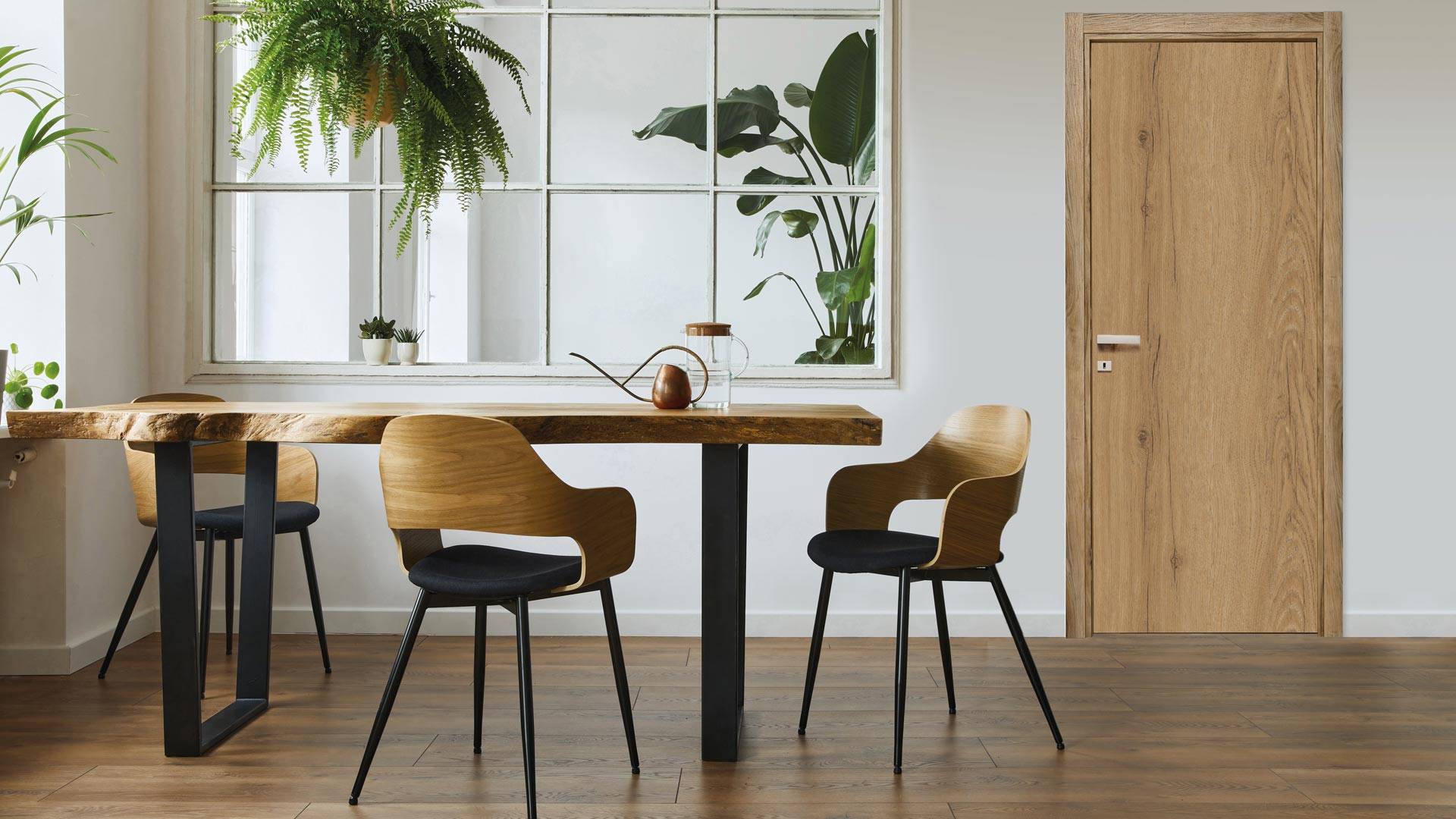
When noise goes out the door but comes in through the window.
Awareness of the importance of soundproofing has made us more discerning about the windows and doors we choose for our homes.
However, while special attention is paid to the choice of windows, with the purchase of double or even triple-glazed models, the same consideration is often not given to the entrance security door. As a result, despite the investment, noise continues to come in.
Instead, to maximize the impact of your soundproofing investment in your home, you need to equip yourself with soundproof security doors, doors that offer high performance in terms of soundproofing.
Sound insulation is a value that corresponds to the ability of the window frame to prevent noise from passing through it: for every one-point increase in this value, noise perception is reduced, and acoustic comfort is improved
Focus: Soundproof Security Doors for Apartments
In addition to high-traffic areas, the soundproofing performance of entry doors is significant in condominiums.
Armored doors with high sound reduction values prevent noise from landing and stairwells from entering the apartment and keep household noise from being transmitted to the outside.
When should a security door be replaced to improve soundproofing?
In recent years, window and door technology has come a long way in terms of sound insulation and soundproofing. As a rule of thumb, a 10-year-old security door should almost always be replaced.
However, materials and technology should be evaluated case-by-case for newer doors.
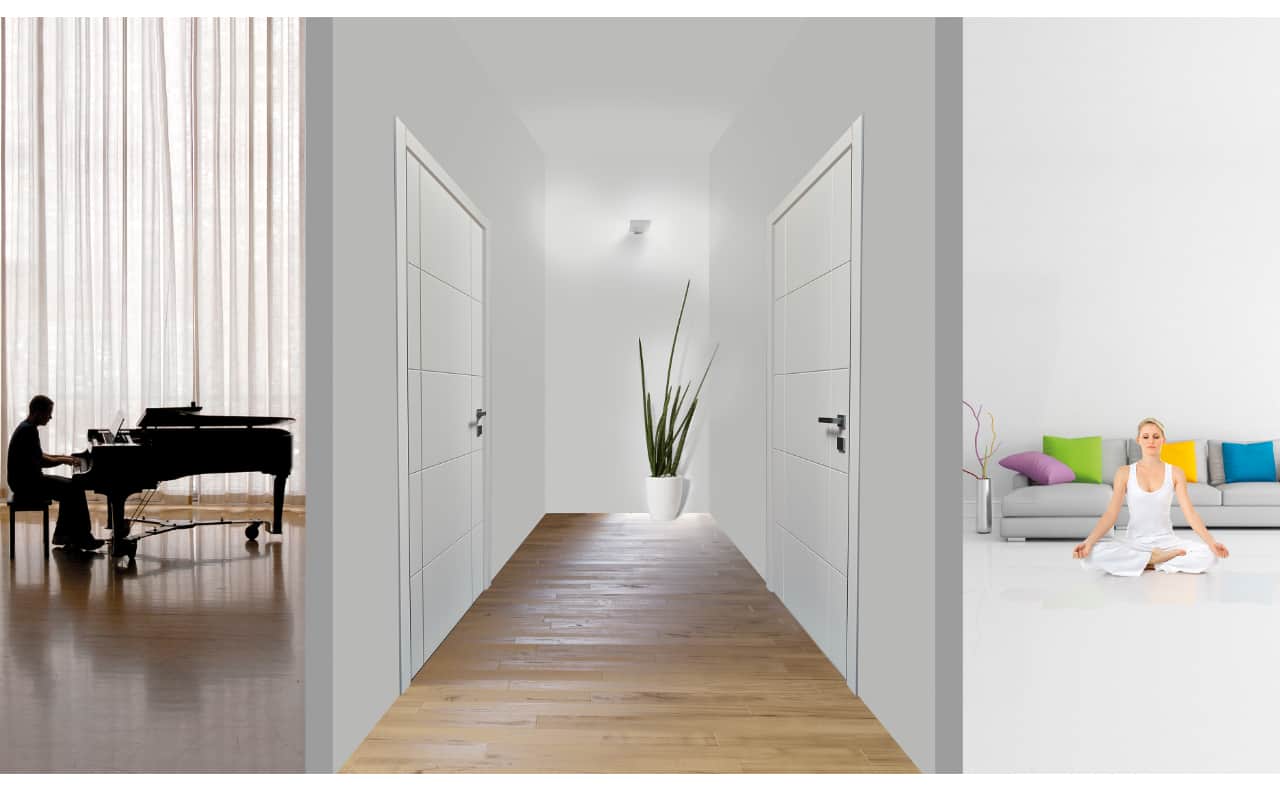
Dierre soundproof armored doors: security and silence in one solution
The best security door, therefore, is one that simultaneously provides:
- Security
- Thermal insulation
- Sound insulation
Since 1975, Dierre’s research and development goal has been to achieve this with every product.
And with each new model, we raise the bar a little higher.
The challenge is tricky because the best material for one aspect often compromises another: the best security door is the one with the most practical combination of technologies and materials.
Armored doors that “break the sound barrier.”
The choice of materials and their exact sequence result from hundreds of tests carried out over the years on the various models and configurations produced.
Our security doors dissipate and then block sound thanks to a precise layering of insulating materials that follow each other inside the door leaf: one layer fragments the sound wave thanks to its sound-absorbing capacity, and another stops its propagation.
The precise arrangement of these materials inside the security door maximizes its soundproofing effect.
At the same time, Dierre armored doors guarantee the best performance on the market in terms of thermal insulation and the highest security standards. .
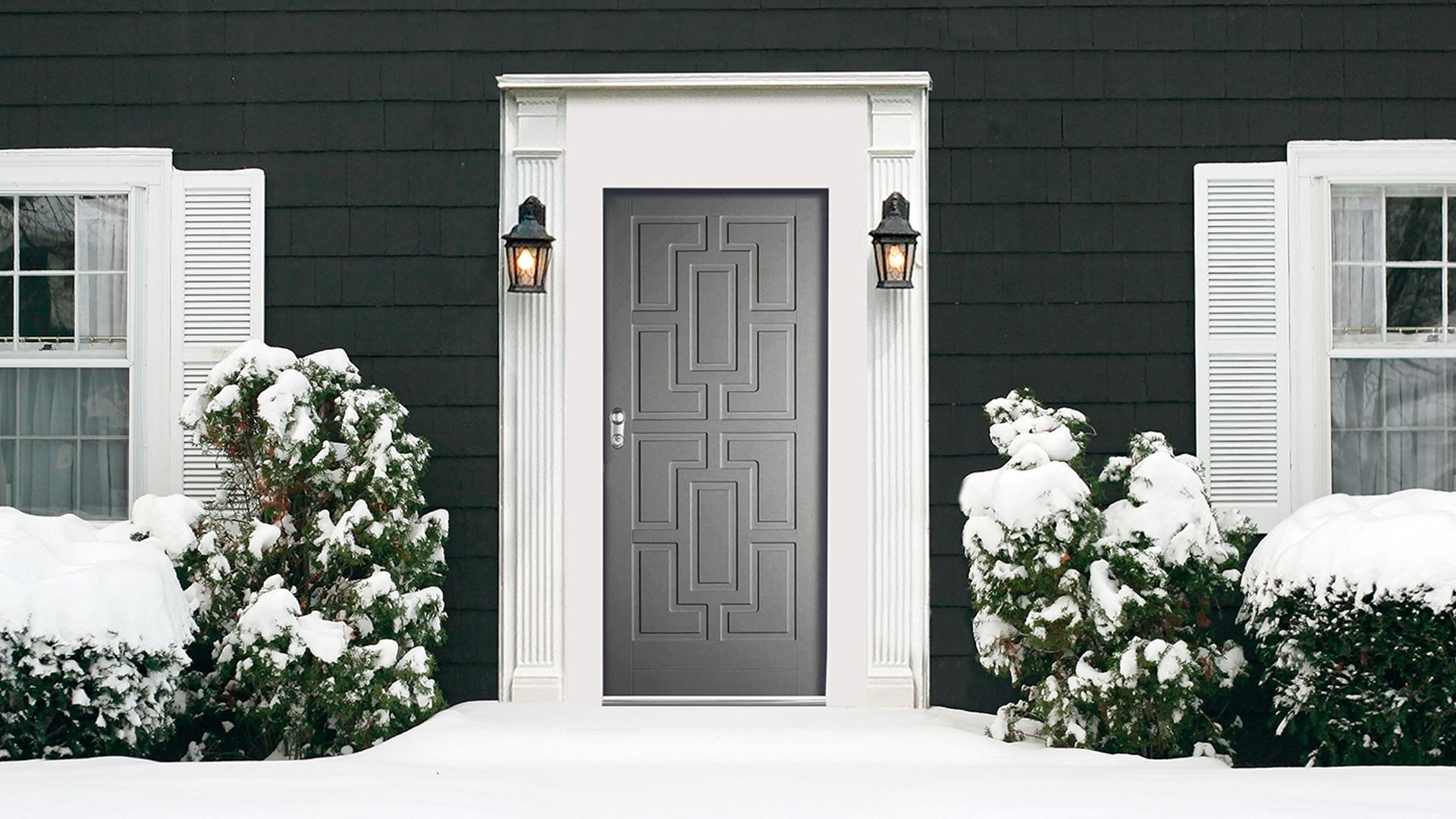
Our best soundproof armored doors
The flagship of the Dierre catalog in terms of acoustic and thermal insulation is the Sinergy Out model.
In addition to our highest security standards, this designer security door is only 63mm thick. It offers up to 0.6W/m2K thermal insulation and 46dB sound insulation (against a market average of only 38).
Considering that each additional point of sound reduction improves acoustic comfort and thus reduces perceived noise, this is an excellent choice for anyone who wants to make their home an oasis of silence – windows and walls permitting!
Would you like additional information? Contact us!
Share this article
Back